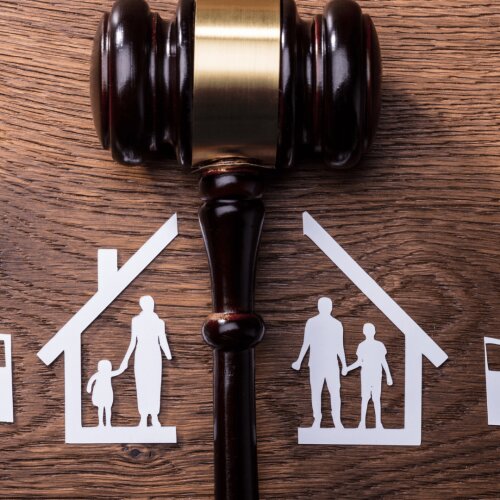Best Native People Lawyers in Brasília
Share your needs with us, get contacted by law firms.
Free. Takes 2 min.
List of the best lawyers in Brasília, Brazil
About Native People Law in Brasília, Brazil
Native People in Brasília, the capital city of Brazil, represent various Indigenous groups with a long-standing presence in the region. While most Indigenous populations are traditionally associated with Brazil's northern and Amazonian territories, Brasília has seen an increasing number of Native People who have migrated for access to health care, education, work, or who have longstanding connections to the Central-West region. The Brazilian Federal Constitution and specific laws recognize Indigenous Peoples’ rights to their cultural heritage, social organization, lands, and identity. In Brasília, Indigenous communities frequently interact with government bodies, legal systems, and social services, making legal knowledge crucial for both Indigenous individuals and those supporting them.
Why You May Need a Lawyer
Legal issues affecting Native People in Brasília can be complex. Situations that may require legal assistance include:
- Protecting land rights or fighting unlawful occupation or eviction
- Seeking recognition of Indigenous status for accessing specific benefits or services
- Discrimination, harassment, or violence in urban or rural settings
- Ensuring rights to education, health care, and social assistance are upheld
- Resolving disputes within the community or with governmental organizations
- Understanding the process for reclaiming cultural artifacts or sacred spaces
- Assisting with legal procedures in civil, criminal, or administrative courts
A lawyer can support Native People in asserting their rights, navigating bureaucratic challenges, and defending their interests before public authorities.
Local Laws Overview
In Brasília, as in all Brazil, the rights of Native People are protected by both federal law and specific local regulations. The Federal Constitution of 1988 is the main source of Indigenous rights, ensuring the respect of social organization, customs, languages, beliefs, and traditional lands. Important legal frameworks include:
- Federal Constitution, especially Articles 231 and 232 on Indigenous rights
- Statute of the Indian (Law 6.001/1973)
- International conventions like ILO Convention 169, ratified by Brazil
- Municipal programs in Brasília aimed at supporting Indigenous migrants and residents
- Policies addressing health, education, and the preservation of cultural heritage
The legal system recognizes the autonomy of Indigenous communities while mandating government protection and the demarcation of traditional lands. Disputes regarding land, access to public services, and combating discrimination are common areas where laws are actively enforced.
Frequently Asked Questions
Who qualifies as an Indigenous person in Brasília?
An Indigenous person is someone who identifies as a member of a Native group recognized by the National Indian Foundation (FUNAI) and whose identity is linked to historical, cultural, or family connections with Indigenous traditions.
Are there reserved lands for Native People in Brasília?
While Brasília itself does not have extensive Indigenous territories like other regions, there are designated areas on the outskirts and some recognized villages and community spaces inhabited by Indigenous groups.
What rights do Native People have regarding health and education?
Native People have the right to differentiated health care and culturally appropriate education, including instruction in Indigenous languages when applicable, as provided for under federal and local laws.
Can Native People access government social programs in Brasília?
Yes, Indigenous individuals can access social programs related to income, education, health, housing, and food security. Assistance may require proof of Indigenous status.
How does the law protect against discrimination?
Federal and district-level laws prohibit discrimination based on ethnicity. Victims of discrimination or racism can seek enforcement of their rights through legal channels and specialized public prosecutor offices.
What steps are needed to register as an Indigenous person?
Registration is managed by FUNAI. It involves presenting documents and may require validation by recognized Indigenous leaders or organizations.
Who manages Indigenous policy and programs in Brasília?
FUNAI is the principal federal agency, while local government bodies like the Distrito Federal's Subsecretariat for Indigenous Peoples may oversee municipal programs and services.
Can Native People reclaim cultural artifacts or sacred places?
Yes, Indigenous communities may apply for the protection and return of cultural artifacts or for the recognition of sacred sites, supported by heritage and cultural laws.
Are there legal protections for Indigenous languages?
Yes, the law and public education policies uphold the use, teaching, and preservation of Indigenous languages, particularly in schools serving Indigenous populations.
What should I do if my rights as an Indigenous person are violated?
Report the violation to FUNAI, the Federal Public Prosecutor’s Office (Ministério Público Federal), or relevant district agencies, and consult with a lawyer experienced in Indigenous rights.
Additional Resources
If you are seeking legal information or assistance regarding Native People in Brasília, the following resources may be helpful:
- FUNAI (Fundação Nacional dos Povos Indígenas) - Main federal body for Indigenous affairs
- Ministério Público Federal (Federal Public Prosecutor’s Office) - Division for Indigenous Peoples’ Rights
- Defensoria Pública da União (Federal Public Defender’s Office) - Free legal assistance in civil matters
- District Subsecretariat for Indigenous Peoples - Local support and municipal programs
- Indigenous and legal advocacy NGOs with a presence in Brasília
- Community associations or leaders of Indigenous groups in Brasília
Next Steps
If you believe you need legal advice or support in matters relating to Native People in Brasília, start by gathering all relevant personal documents, any evidence of the issue, and, if possible, documentation proving Indigenous status. Contact FUNAI or the local public defender’s office to request information or schedule an appointment. If your situation is urgent or involves criminal or civil rights violations, reach out to the Federal Public Prosecutor’s Office or a lawyer specialized in Indigenous rights. Engaging with community organizations can also provide guidance, support, and referrals to appropriate legal professionals. Always ensure your rights are protected and that you navigate the legal system with accurate information and qualified representation.
Lawzana helps you find the best lawyers and law firms in Brasília through a curated and pre-screened list of qualified legal professionals. Our platform offers rankings and detailed profiles of attorneys and law firms, allowing you to compare based on practice areas, including Native People, experience, and client feedback.
Each profile includes a description of the firm's areas of practice, client reviews, team members and partners, year of establishment, spoken languages, office locations, contact information, social media presence, and any published articles or resources. Most firms on our platform speak English and are experienced in both local and international legal matters.
Get a quote from top-rated law firms in Brasília, Brazil — quickly, securely, and without unnecessary hassle.
Disclaimer:
The information provided on this page is for general informational purposes only and does not constitute legal advice. While we strive to ensure the accuracy and relevance of the content, legal information may change over time, and interpretations of the law can vary. You should always consult with a qualified legal professional for advice specific to your situation.
We disclaim all liability for actions taken or not taken based on the content of this page. If you believe any information is incorrect or outdated, please contact us, and we will review and update it where appropriate.










